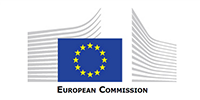_Person.jpg)
On Friday the European Commission launched the 16th EUROPEANMOBILITYWEEK, a flagship campaign for Mobility and Transport, taking place from 16 to 22 September 2017.
More than 2000 towns from Europe and beyond have organised events to encourage residents to try out alternatives to traditional means of transport, generally culminating in a Car-Free Day. This is in line with the theme of this year campaign: ‘Clean, shared and intelligent mobility’ and its call-to-action ‘Sharing gets you further’. At the same time, the Commission is launching a call for applications for this year’s award for sustainable urban mobility planning (SUMP Award). This year's award focuses on shared mobility to promote intelligent and clean transport, the same theme as EUROPEANMOBILITYWEEK.
Violeta Bulc, Commissioner for Transport said: “Shared mobility is a smart and innovative emerging model of transportation, with the potential to reduce the number of vehicles on the roads: for example, for each shared car, 15 private cars are off the road. But it's not only about cars; we are witnessing a real spurt of shared bike systems in cities and towns across the EU. We need to ensure that the future of urban mobility is both shared and sustainable."
This year’s EUROPEANMOBILITYWEEK encourages people to use shared forms of transportation such as bicycle and car sharing. Europe is the leader in shared mobility solutions and the value of transactions in shared mobility in Europe was estimated at EUR 5.1 billion in 2015. It is expected to exceed EUR 100 billion in 2025. Sharing transportation not only helps people save money, but also support the EU's goals of achieving a low-emission economy.
Every year, local authorities making significant efforts to promote sustainable urban mobility during the campaign, can apply for the EUROPEANMOBILITYWEEK Award until 23 October 2017. Local authorities can also apply for the Award for Sustainable Urban Mobility Planning (SUMP Award) until 3 November 2017. SUMP rewards the development of a mobility plan addressing the diverse transport needs of people and businesses.
About EUROPEAN MOBILITY WEEK 2017
EUROPEANMOBILITYWEEK focuses on a different aspect of sustainable urban mobility each year. The idea of shared mobility, this year's focus, is quickly spreading in urban centres through the introduction of bicycle sharing, fixed or free-floating car sharing, or even park-sharing solutions. To name but a few: researchers at University College London developed a Bike Share Map covering more than 600 cities, while Vélib’ in Paris offers some 20,000 bicycles at 1,800 stations. Cities that already had a bike share scheme are now introducing electrically-assisted bicycles (e-bikes) either as a complement to traditional bikes, or as a brand new service. For example, Brussels will soon have its first 150 public e-bikes in operation. Several cities go beyond traditional car sharing by proposing electric car-sharing schemes such as Liselec in La Rochelle or free-floating systems such as in Amsterdam, Berlin, Madrid, Rome and Vienna. The popularity of smart mobility solutions has increased with the introduction of electric-automated shuttles, such as the 2getthere – operated shuttle in the city of Capelle aan den Ijssel close to Rotterdam. Smart technologies strongly contribute to shared mobility: Métropole de Lyon launched a digital tool ONLYMOOV that shows users the quickest itinerary for their journey together with information on the availability of bicycles and car-sharing options, cycle paths and car and bicycle parking possibilities.
European Commission
Transport directly affects everyone in Europe. Whatever age we are, and whatever activities we undertake, transport and mobility play a fundamental role in today’s world. The aim of the Commission is to promote a mobility that is efficient, safe, secure and environmentally friendly and to create the conditions for a competitive industry generating growth and jobs. The issues and challenges connected to this require action at European or even international level; no national government can address them successfully alone. The European Commission’s Directorate-General for Mobility and Transport works in concert with the European Union Member States, European industry, citizens and stakeholders.




Comments
There are no comments yet for this item
Join the discussion